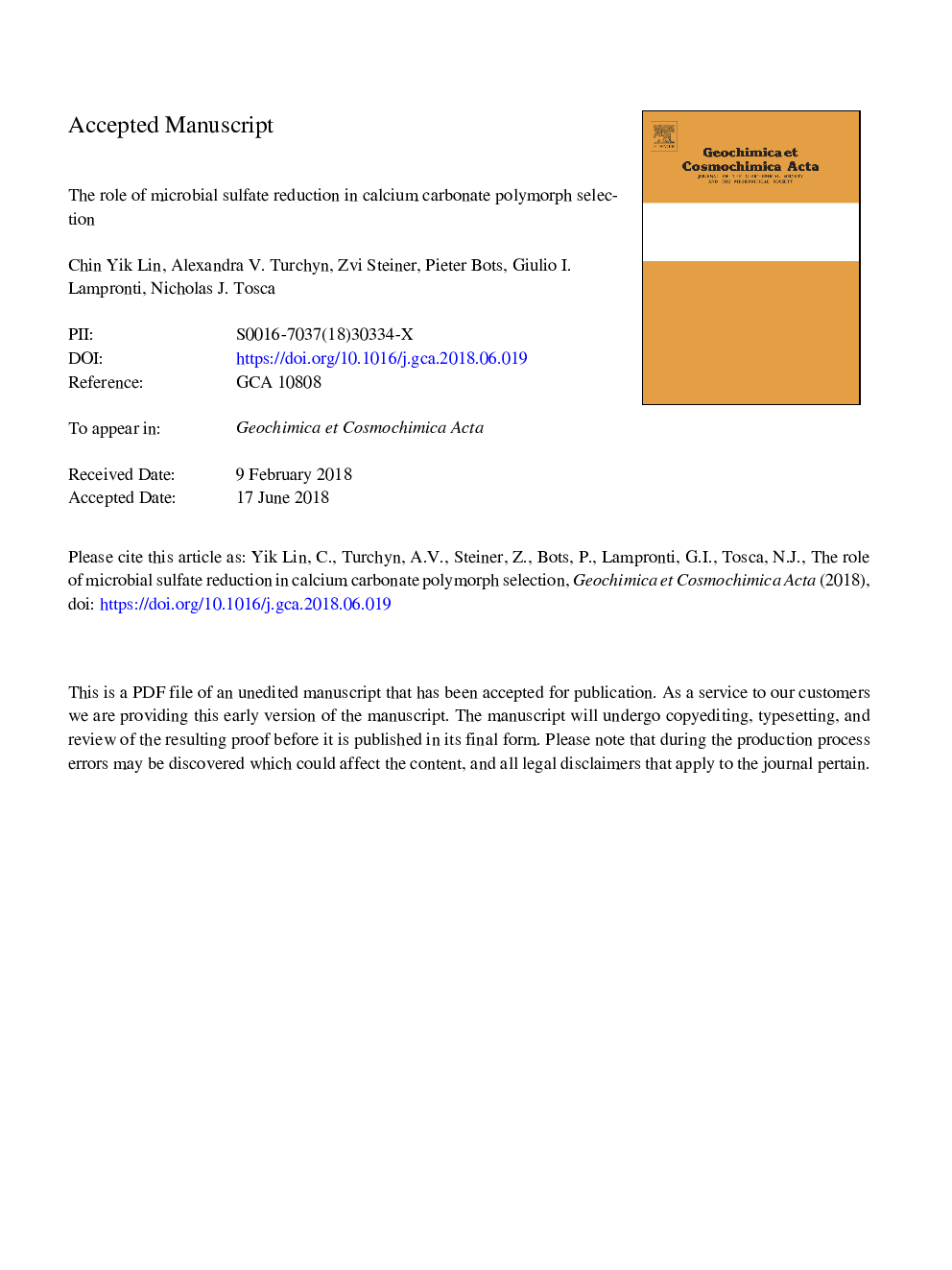| Article ID | Journal | Published Year | Pages | File Type |
|---|---|---|---|---|
| 8910632 | Geochimica et Cosmochimica Acta | 2018 | 48 Pages |
Abstract
Microbial sulfate reduction is a dominant metabolism in many marine sedimentary environments. The influence of this metabolism on the kinetics of CaCO3 growth, as well as the dominant polymorphs precipitated, is poorly understood. To investigate the role of microbial metabolism on CaCO3 precipitation and polymorph selection, we conducted growth experiments with the sulfate reducing bacteria (D. bizertensis) in media with varying Mg/Ca and different seeding materials (calcite and kaolinite). Our results suggest that sulfate reducing bacteria both induce carbonate mineral precipitation through an increase in alkalinity and serve as a nucleation sites for the growing carbonate mineral; the majority of the carbonate minerals produced were on cell material rather than mineral seeds. We also find the Mg/Ca and presence of phosphate in the media play a key role in controlling the rates of carbonate mineral precipitation and calcium carbonate polymorph selection. In media where the Mg/Ca is greater than 2, crystalline monohydrocalcite (MHC) is the primary carbonate mineral produced. Although phosphate concentrations have a lesser effect on which polymorph initially precipitates, a series of transformation experiments suggests that the presence of phosphate stabilizes MHC crystals and prevents its transformation to more stable calcium carbonate polymorphs. Collectively, these results suggest that the polymorph of microbially-mediated calcium carbonate cements is determined by the solution chemistry upon nucleation.
Keywords
Related Topics
Physical Sciences and Engineering
Earth and Planetary Sciences
Geochemistry and Petrology
Authors
Chin Yik Lin, Alexandra V. Turchyn, Zvi Steiner, Pieter Bots, Giulio I. Lampronti, Nicholas J. Tosca,
